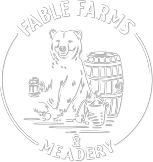Plantain less than an hour after spraying with organic Burnout.
When going into battle against a rapidly spreading enemy that has you surrounded choosing your weapons carefully is key. Spring and summer are definitely the time for birth and rejuvenation on the farm. Unfortunately, that includes the ‘birth’ of a lot of weeds. Those suckers pop up everywhere! We aren’t as rigid as most when it comes to our definition of weeds. There are actually a lot of plants that more persnickety people classify as weeds and we just consider robust volunteer vegetation. These include dandelion, purslane, clover, and English daisy. Our list used to be much longer until I learned that I’m highly allergic to many wild herbs that I love, such as the plantain in the picture above. However, everyone has to draw the line somewhere and for me, it’s usually on plants that are toxic to my horses, goats, and dogs.
Developing a Good Strategy
We spend a lot of our days on the farm in battle with noxious weeds. As much as we try to be good stewards to the land we’ve been blessed with and use primarily organic methods, but it’s hard to go into battle when you’re weapons of choice are so restricted. When we were starting out we try to use organic methods but many of the costly products that we tried just didn’t work well. We’ve also tried the homemade weed killer. It worked with some success but it only works on some weeds and the temperatures need to be very hot. This means we do a lot of hand-pulling of the plants we need removing from our pastures and fields. Pulling weeds works best if you can get the roots, but this isn’t always possible. So we’ve had the best success in sending the weeds into retreat with an alternating combination of pulling and spraying with an effective organic spray.
Picking the Right Weapons is Key
Adding a good backpack weed sprayer to your arsenal is fundamental. I like this one. The sprayer needs to be a decent size so I’m not returning to the shop to refill every 20 minutes, but on the other hand, it shouldn’t be so big I can’t carry it on my back. This one meets both criteria. Best of all, the price won’t break the bank.
The next question is what to fill your sprayer with. What we’ve found most effective for us is using Burnout*. This is an organic grass and weed killer that contains things like clove oil, vinegar, and citric acid. It’s a nonselective weed killer so be careful where you spray it. This has worked incredibly well for us with many weeds browning and shriveling up within an hour. It has even tackled the infamous Washington wild blackberries! We’ve also recently met some amazing gardener friends who swear by using a 30% strength vinegar* on their weeds. Their beautiful garden is a testament to the effectiveness of this natural weed killer. Bonus: it’s easy to use and sans all the nasty chemicals that I would prefer to keep away from my property.
Persistence Pays Off
While it often feels like you are spraying or pulling the same weed patch over and over again persistence really does pay off. Between spraying and hand pulling most weeds are weakened and can’t effectively photosynthesize, starving their roots of energy. If you can begin your assault early in spring, when the weeds first begin emerging, you can often catch them before they go to seed, gaining another advantage in the war.
So now you have a good battle plan and the weapons to lead you to success. Good luck and battle on!
*Some of the links above are affiliate links. This means that, at zero cost to you, I will earn an affiliate commission if you click through the link and finalize a purchase.







